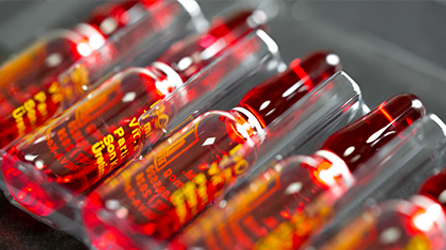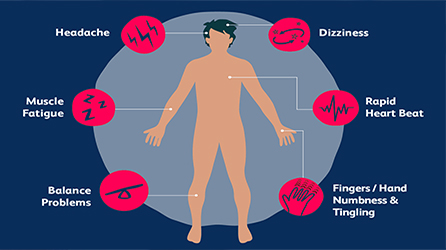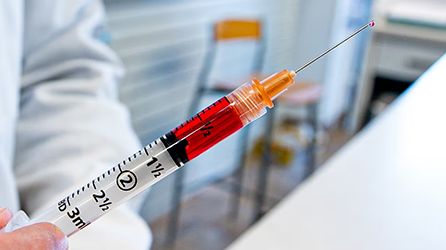Coming soon
Vitamin B12 Injections

More Energy
Vitamin B12 injections, also known as cyanocobalamin injections, are a form of vitamin supplementation administered via intramuscular injection. Vitamin B12 is a crucial nutrient that plays a vital role in various bodily functions, including red blood cell production, DNA synthesis, neurological function, and energy metabolism.
Here are some key points about vitamin B12 injections:
Indications: Vitamin B12 injections are commonly prescribed to treat or prevent vitamin B12 deficiency. This deficiency can occur due to various factors, including inadequate dietary intake (especially in vegetarians and vegans), malabsorption disorders (such as pernicious anemia or gastrointestinal disorders), certain medications, and conditions affecting the stomach or small intestine.

Symptoms of Deficiency: Vitamin B12 deficiency can lead to a range of symptoms, including fatigue, weakness, pale or jaundiced skin, shortness of breath, numbness or tingling in the hands and feet, difficulty walking, memory problems, and mood changes. Severe or prolonged deficiency can result in neurological complications and irreversible damage.
Benefits of Injections: Intramuscular vitamin B12 injections are often preferred in cases of severe deficiency or when oral supplementation is ineffective due to absorption issues. By bypassing the digestive system and delivering the vitamin directly into the muscle tissue, injections ensure better absorption and faster replenishment of vitamin B12 levels in the body.

Administration: Vitamin B12 injections are administered by a qualified professional, in a clinical setting. The injection is given into the muscle (usually the deltoid muscle of the upper arm or the gluteal muscle of the buttock) using a sterile syringe and needle. The frequency and dosage of injections may vary depending on the severity of the deficiency and the individual's response to treatment.
Safety and Side Effects: Vitamin B12 injections are generally considered safe when administered by a qualified healthcare provider. However, like any medical procedure, there are potential side effects and risks, including pain or discomfort at the injection site, redness, swelling, and allergic reactions in rare cases. It's essential to follow the healthcare provider's instructions regarding dosage and frequency of injections to minimize the risk of adverse effects.

Monitoring and Follow-up: Individuals receiving vitamin B12 injections may require periodic blood tests to monitor their vitamin B12 levels and response to treatment. Regular follow-up appointments with a healthcare provider are essential to assess the effectiveness of supplementation, adjust treatment as needed, and address any concerns or symptoms.
Dietary Sources: While vitamin B12 injections are effective for treating deficiency, it's also important to incorporate dietary sources of vitamin B12 into the diet. These include animal products such as meat, fish, poultry, eggs, dairy products, and fortified foods. For individuals following a vegetarian or vegan diet, fortified plant-based foods and B12 supplements may be necessary to ensure adequate intake.
Vitamin B12 injections are an important treatment option for individuals with vitamin B12 deficiency, helping to restore normal vitamin levels and alleviate associated symptoms. At KC-AESTHETICS we are qualified and experienced professional, we discuss individual needs, and suitability for treatment, and we take the proper means to address vitamin B12 deficiency with associated health issues, promoting energy, cognitive function, and overall well-being.
Booking a B12 injection
Book your B12 injection below.
Provide Necessary Information: Be prepared to provide any necessary information such as your name, contact details, and any medical history or prescriptions related to the B12 injection.
Prepare for the Appointment: Follow any instructions provided by KC Aesthetic to prepare for your B12 injection appointment.
Attend Appointment: Arrive on time for your scheduled appointment at KC Aesthetic for your B12 injection.
Frequently Asked Questions
Due to the complexity of the technology and its effects we invite you to check the FAQ section.
-
What is vitamin B12?
Vitamin B12, also known as cobalamin, is a water-soluble vitamin that plays a crucial role in various bodily functions, including red blood cell formation, neurological function, DNA synthesis, and energy metabolism.
-
Why might someone need vitamin B12 injections?
Vitamin B12 injections are typically prescribed to individuals who have a deficiency in vitamin B12. This deficiency can occur due to factors such as inadequate dietary intake, malabsorption disorders, certain medical conditions, or medications that interfere with vitamin absorption.
-
What are the symptoms of vitamin B12 deficiency?
Symptoms of vitamin B12 deficiency can vary but may include fatigue, weakness, pale or jaundiced skin, shortness of breath, numbness or tingling in the hands and feet, difficulty walking, memory problems, mood changes, and digestive issues.
-
How are vitamin B12 injections administered?
Vitamin B12 injections are typically administered via intramuscular injection, usually into the deltoid muscle of the upper arm or the gluteal muscle of the buttock. The injections are performed by a healthcare professional using a sterile syringe and needle.
-
How often do I need to get vitamin B12 injections?
The frequency of vitamin B12 injections depends on the severity of the deficiency and the individual's response to treatment. Initially, injections may be given more frequently (e.g., weekly or biweekly) to rapidly replenish depleted stores, followed by maintenance doses every few months to sustain adequate vitamin B12 levels.
-
Are Anti Wrinkle Injections injections painful?
Most people find Anti Wrinkle Injections injections to be relatively painless. Some may experience mild discomfort or a slight stinging sensation at the injection site, but this usually resolves quickly. Topical numbing cream or ice may be applied to minimize any discomfort during the procedure.
-
Are there any side effects or risks associated with vitamin B12 injections?
Vitamin B12 injections are generally considered safe when administered by a qualified healthcare provider. However, some individuals may experience mild side effects such as pain or discomfort at the injection site, redness, swelling, or allergic reactions in rare cases.
-
Can't I just take vitamin B12 supplements orally instead of getting injections?
In some cases, oral vitamin B12 supplements may be sufficient for correcting mild deficiencies or for maintenance therapy. However, individuals with severe deficiency or absorption issues may benefit more from vitamin B12 injections, as they provide a direct route of administration and ensure better absorption of the vitamin.
-
How long does it take to notice improvement after starting vitamin B12 injections?
The timeframe for improvement varies from person to person but may take a few weeks to months. Some individuals may start to feel better and experience improvements in symptoms such as fatigue and weakness relatively quickly, while thers may require more time to see noticeable changes.
